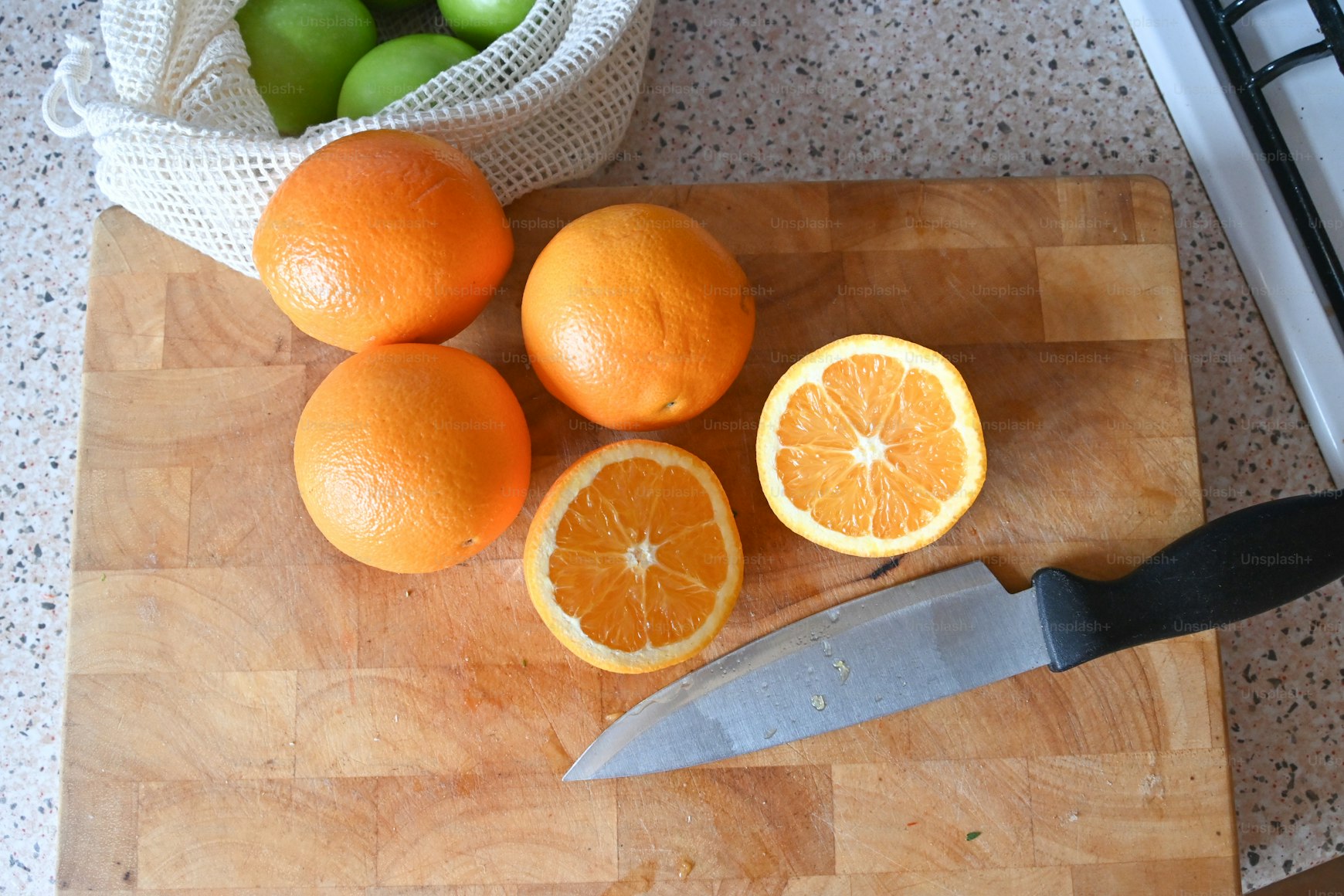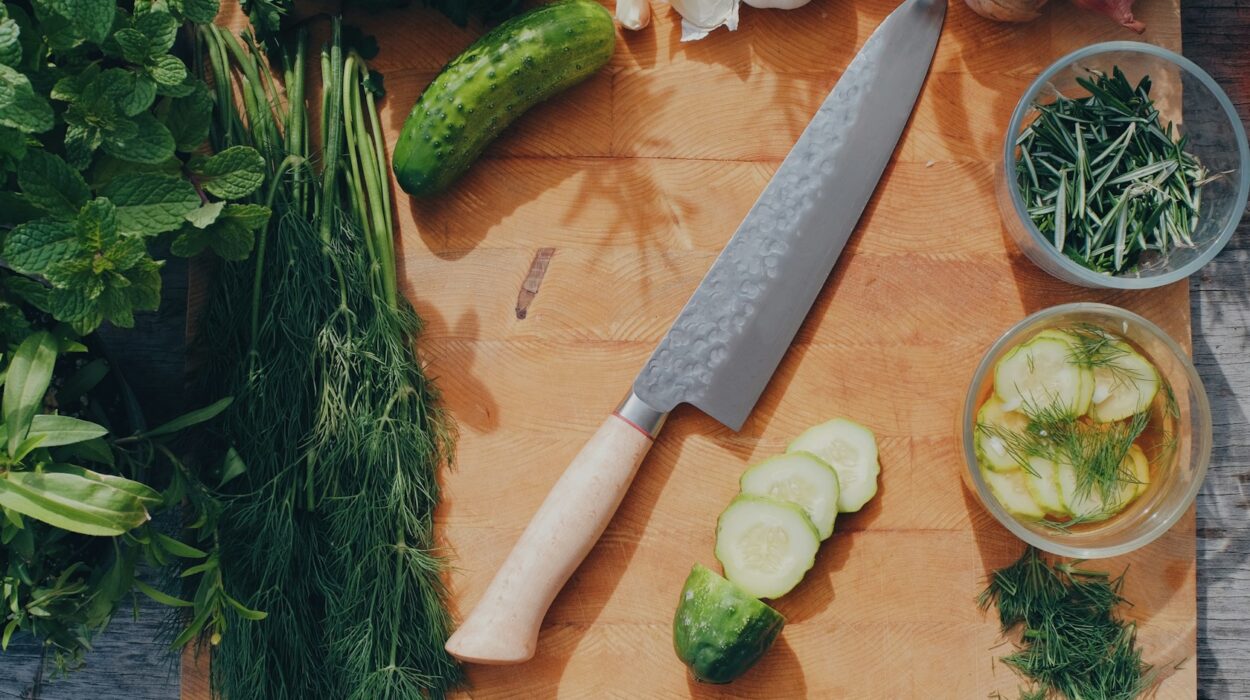Learning chef knife skills can be a tremendous boost to your culinary journeys. Whether you’re a food enthusiast or a budding chef, mastering the use of a chef’s knife can make a big difference in your kitchen experiences.

Why Master Chef Knife Skills?
Good knife skills are important. They ensure precision during meal prep, increase efficiency, and ensure safety. When you know how to use a knife properly, you can handle ingredients easily and create uniform, beautifully presented dishes.

Basic Knife Types You Need
- Chef’s Knife: Versatile and excellent for chopping, slicing, and dicing.
- Santoku Knife: Great for precise cuts.
- Serrated Knife: Ideal for bread and tomatoes.
Understand the uses of different knives to make sure you use the right one for the right job. For more information about different chef knives, read Santoku Knife.

Getting Started: The Right Grip
A good grip is crucial. Hold the knife firmly with your dominant hand on the handle and your thumb and index finger pinching the blade just above the handle. This gives you stability and control.

Knife Techniques for Beginners
Before diving into complex cuts, practice these beginner-friendly techniques:
- Chopping: Perfect for vegetables like onions and garlic.
- Slicing: Ideal for meats and fish.
- Julienning: Create thin matchstick cuts.
- Dice and Cube: For fruits and vegetables like carrots and potatoes.
For detailed methods, check out this page on What to Cut.
Safety First: Avoiding Common Mistakes
Good knife skills include avoiding bad habits:
- Never place fingers on the cutting path.
- Curl your fingers inward like a claw to protect them.
- Keep knives sharp; dull knives are unsafe.
Find out more about safe knife practices here.
Sharpening Your Skills and Knife
Regular knife maintenance makes a big difference. Sharpen your knives often with a honing rod or whetstone. A sharp knife ensures precise cuts and reduces the risk of slipping.
Intermediate Techniques: Take It Up a Notch
Once you are comfortable with the basics, move on to:
- Rock Chop: For herbs and leafy greens.
- Diagonal Slicing: Perfect for Asian cuisine.
- Chiffonade: Great for basil and other leafy herbs.
- Butchery Skills: Such as deboning chicken or filleting fish.
Practice Makes Perfect: Cooking More Often
The more you practice, the better you get. Make cooking a routine and try new recipes. Challenge yourself with diverse cuisines like Japanese, Mediterranean, and more.
Learning from the Experts
Enroll in cooking classes or workshops. Watch online tutorials by professional chefs. These resources are valuable for both beginners and advanced learners.
Knife Maintenance: Keeping It Clean and Sharp
Wash knives by hand instead of dishwashers, which can dull the blade. Store them in a knife block or magnetic strip to prevent damage. For more tips, visit How to Use a Chef Knife.
The Power of Practice
Remember, becoming proficient with a chef’s knife takes time and patience. Regularly incorporate new techniques into your cooking routines to see tremendous progress.
FAQ
What is the first step to learning chef knife skills?
The first step is mastering the proper grip and understanding different knife types. Start with the basics like chopping and slicing before moving to advanced techniques.
How do I keep my knives sharp?
Regularly use a honing rod and occasionally a whetstone for sharpening. Keeping your knives sharp is critical for safety and efficiency.
Is it necessary to have different types of knives?
Yes, using the right knife for the right job can greatly improve your cooking experience. A chef’s knife is versatile, but specialized knives like Santoku or Serrated have their uses too.
As an Amazon Associate, I earn from qualifying purchases.
Mastering chef knife skills promises delightful experiences in the kitchen, ensuring safety and efficiency. From beginners to experienced cooks, the journey to becoming a knife master involves continuous learning, practice, and the right techniques. Stay safe and happy cooking!
As an Amazon Associate, I earn from qualifying purchases.


